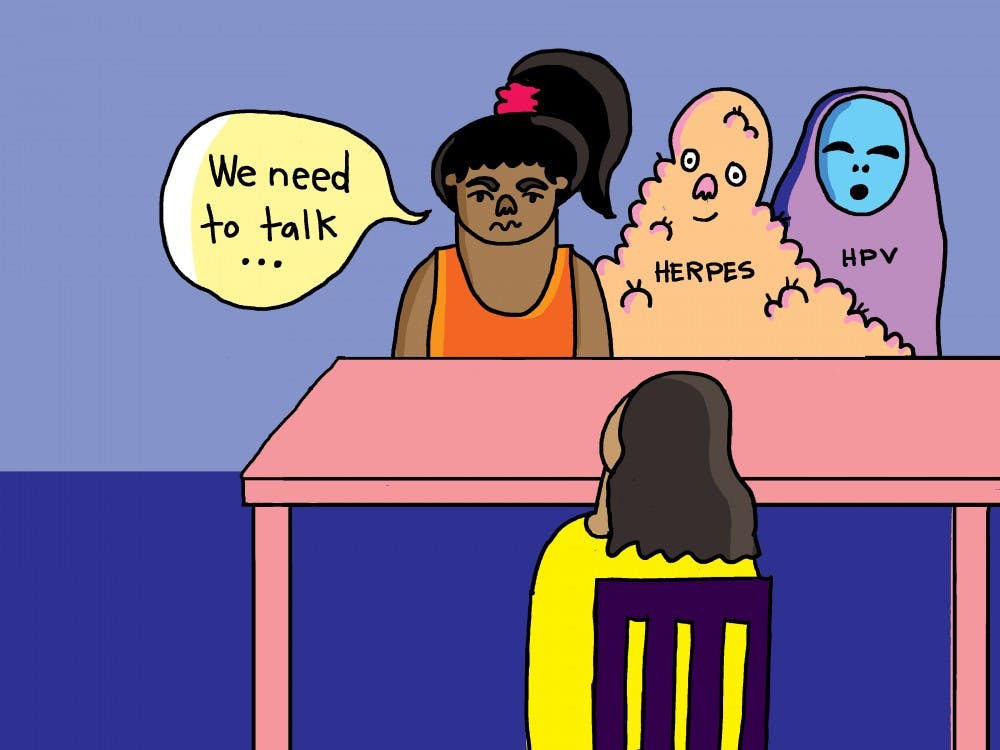Let’s face it: STDs and STIs are not the sexiest subject. Your sexts are probably not filled with dialogues about HPV. The subject feels awkward and embarrassing, especially when you are talking to a potential partner.
However, STDs are incredibly common — especially among young people. Over half of the population will have an STD or STI at some point in their life.
Despite these heavy statistics, college students find it difficult to talk about STDs and STIs. ASU even offers testing and treatment, as well as a sexual health assessment tool, but the first step is to have tough, honest conversations that lead to getting tested.
However, these conversations are part of mature and healthy relationships and sex lives. If we cannot talk to our partners, whether they are short-term or long-term, there is a problem.
Students are taught from the get-go that they need to talk to their partners about possible diseases and infections either partner may have. Horror stories are told to high school students in sexual education classes, often attempting to scare them into celibacy.
Still, STDs and STIs are not a common pre-hookup topic of conversation. This conversation is often viewed as a downer or mood-killer. This does not just affect your health — it affects your sex life.
If you are unable to talk to your partner about STDs and STIs, you probably are not going to have enjoyable sex with them. Positive sexual experiences are built on feelings of safety. If you do not feel safe, you probably will not be able to relax during sex, making the experience uncomfortable at best.
"It's fair for both partners to know what they are bringing into the relationship," said David Glassman, an OB/GYN with the Phoenix OB/GYN Society. "There has to be a high level of trust and understanding (in a relationship). Talking about STDs and STIs creates long term stability and trust."
Think about it: If you are worrying about diseases or infections your partner might have, you cannot possibly focus on having a positive sexual experience. All your energy will be going toward feelings of anxiety and stress, instead of toward having fun.
Reservations about talking about STDs and STIs stifle open communication with our partners. If we cannot talk to our partners about something as clinical and common as sexually transmitted diseases and infections, we cannot expect to have a healthy future with them.
Relationships are built on great communication, and this means talking about things that are hard to talk about.
STDs and STIs do not indicate promiscuity. This stigma is part of the problem, in fact it may even curb people from getting screened. This stigma is misplaced, especially when you consider that it eliminates half the population from your dating pool.
Being able to talk about STDs and STIs with our partners signifies an ability to have healthy and mature relationships and sexualities. If talking about these issues with your partner causes anxiety, it may be a clue that either the relationship is unhealthy or you should reevaluate your readiness for sexual activity.
STDs and STIs are completely normal, so we need to make talking about them normal. While STDs and STIs are not fun, they are a part of sexual activity. You should do your best to protect yourself from them, and talking about them is a crucial step.
Normalizing these conversations will have an exceptionally positive impact. If we understand what we are getting into when we sleep with someone, we will have better sex, more fulfilling relationships and healthier bodies.
Reach the columnist at sljorda4@asu.edu or follow @skyjordan4 on Twitter.
Editor’s note: The opinions presented in this column are the author’s and do not imply any endorsement from The State Press or its editors.
Want to join the conversation? Send an email to opiniondesk.statepress@gmail.com. Keep letters under 500 words and be sure to include your university affiliation. Anonymity will not be granted.
Like The State Press on Facebook and follow @statepress on Twitter.




